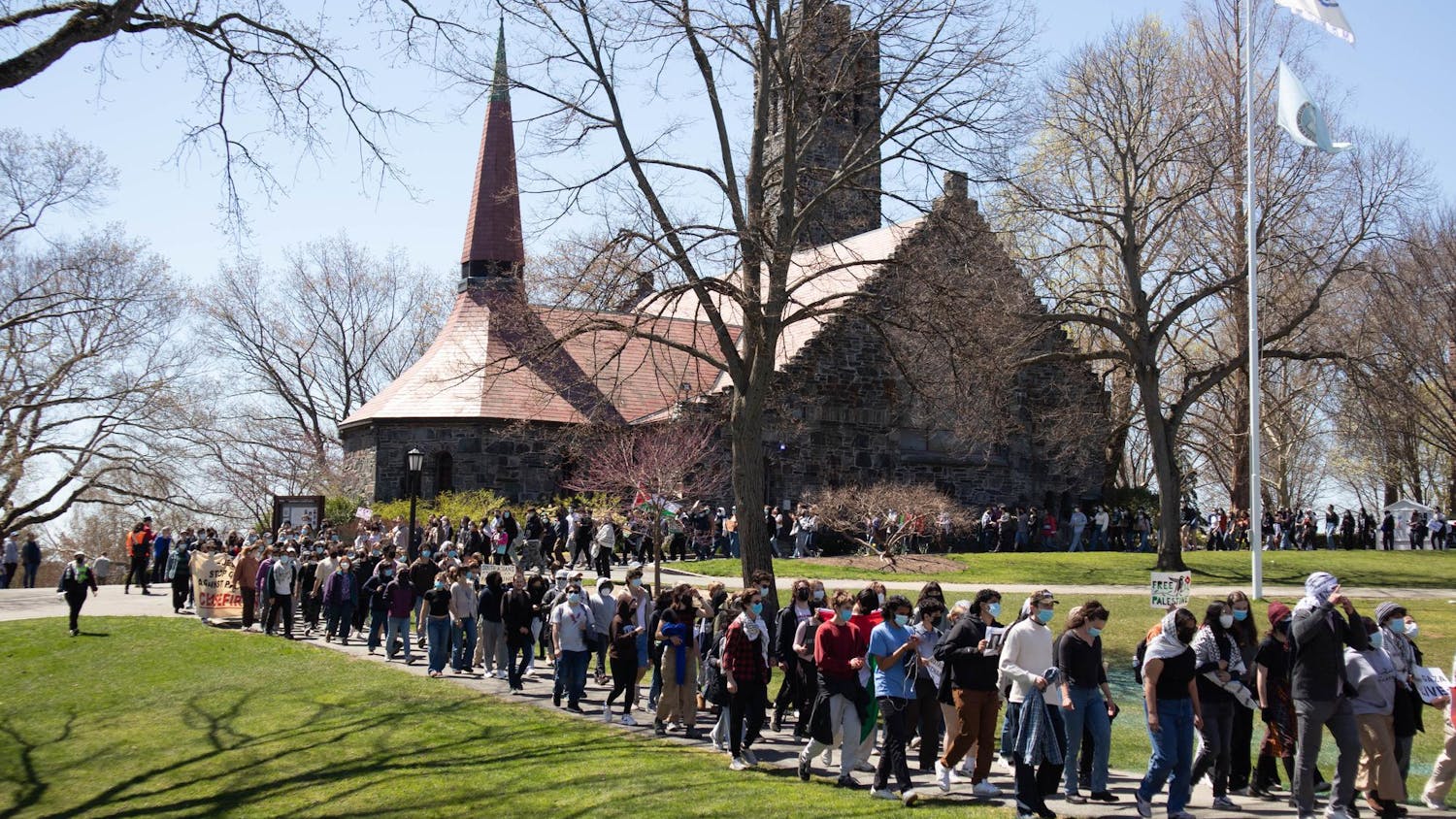Is dog racing in Massachusetts a cruel, archaic pastime or a responsible industry that supports the livelihood of hundreds of people?
Voters will decide the fate of hundreds of workers and thousands of greyhounds on Nov. 4 when they vote on the Massachusetts state ballot's Question 3.
A number of animal rights groups have endorsed Question 3, "The Greyhound Protection Act," which will determine whether dog racing remains legal in Massachusetts.
Passage of the referendum would close the two pari-mutuel greyhound racetracks in Massachusetts and potentially put hundreds of people out of work.
Question 3's opponents argue that greyhound tracks follow state-imposed regulations and thus, do nothing wrong. Anti-greyhound racing activists contest that the rules themselves are inhumane and the conditions at the tracks amount to animal cruelty. The Massachusetts State Racing Commission (MSPCA) oversees the industry.
Since 2002, more than 800 dogs have been injured while racing in Massachusetts. Nearly 80 percent of these injuries have involved broken legs, while other injuries have included paralysis, cardiac arrest and broken necks.
Christine Dorchak, co-chair of the Committee to Protect Dogs, a group that supports Question 3, told the Daily that hundreds of dogs will continue to be injured if greyhound racing continues.
"[Dog racers] keep dogs boxed up in 32-inch-wide-by-34-inch-high cages for an average of 20 hours a day," she said. According to state records, one dog goes down injured every three to four days.
Detractors to Question 3 contend that such claims are a gross misrepresentation. George Carney, the owner of one of the largest dog racing tracks in the state, said that racetracks treat greyhounds well.
"To the best of our knowledge, the MSPCA has never had a complaint; in 40 years I've never heard from them. I think that is very important," said Carney, who owns Raynham-Taunton Greyhound Park.
Grey2K USA, a national network of humane-minded citizens working to pass stronger dog-protection laws, approved all of the kennels at Raynham Park, according to Carney.
He called it an "absolute lie" that greyhounds are typically caged for 20 hours per day. "Why would a person keep a dog in those conditions if they expect the dogs to go out and run and make money to sustain their livelihood?"
But the Committee to Protect Dogs' Web site claims that Grey2K sets much more stringent standards than state-approved cages at Raynham Park and other tracks meet.
Carney said that Question 3's passage could threaten the livelihood of over 1,000 Massachusetts residents who work in the greyhound-racing industry. Question 3 proponents say the number of affected workers would be much lower.
Massachusetts state regulations for racetracks dictate safety requirements for greyhounds. These regulations include having an on-sight veterinarian to examine the greyhounds before and after races, commissioning random drug tests for dogs and consenting to unannounced inspections of the kennels and racing
facilities.
Dorchak said that racetracks' treatment of greyhounds is still not up to par. "Perhaps people [do not] consider what [happens] to greyhounds," she said. "Maybe they [do not] know that greyhounds are very fragile by nature and when they collide when racing, many of them break their legs, backs and necks."
Racing opponents also claim that dogs are often fed a diet based on "4-D" meat, which comes from dying, diseased or disabled livestock.
But Carney said that racetracks do not feed dogs sub-par food, as such a diet would hinder their performance.
"Greyhounds are bred to run, they love to run — they are not house pets," he said. "It's like a horse doesn't have to be taught to run; it runs because it has been bred to and has a natural instinct."
In 2000, a proposal similar to Question 3 came up for a vote and was defeated by a two-percent margin.
The Massachusetts Society for the Prevention of Cruelty to Animals–Angell Animal Medical Center, the Greyhound Protection Group and the Humane Society of the United States have come out in support of Question 3. "Over two dozen lawmakers and almost every major animal shelter in the state" have given their backing, Dorchak said.
But Carney said that racetracks remain committed to the welfare of their greyhounds, despite claims otherwise.
Raynham Park has contributed over $1 million to set up a fund to transfer retired greyhounds into homes, he said. The program boasts a 100-percent adoption rate, he added.
Proponents of the ballot measure say that the tracks are failing economically anyway. Since 2002, gambling revenues have decreased by 65 percent at Wonderland Greyhound Park in Revere, Mass., and by 37 percent at Raynham Park. In a 2006 interview with the Boston Herald, Wonderland Park President Richard Dalton said, "Without significant changes in how we do business, we are not going to be able to stay in business much longer."





